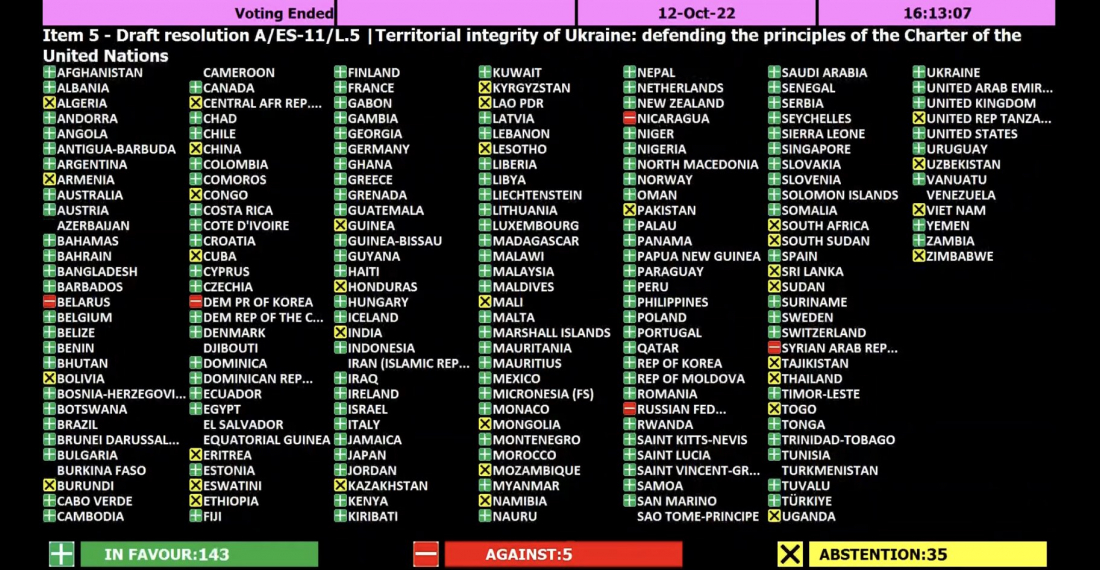Russia found itself in the company of only four other countries at a vote at the UN General Assembly on Wednesday (12 October) which condemned its annexation of Ukrainian territory
The resolution calls on all States, the UN and international organisations not to recognize any of Russia’s annexation claim and demands the immediate reversal of its annexation declaration.
143 courties supported the resolution that condemned Russia's annexations.
The four countries that supported Russia were Belarus, Nicaragua, North Korea, and Syria
35 countries abstained, namely:
Algeria, Armenia, Bolivia, Burundi, Central African Republic, China, Republic of the Congo, Cuba, Eritrea, Eswatini, Ethiopia, Guinea, Honduras, India, Kazakhstan, Kyrgyzstan, Laos, Lesotho, Mali, Mongolia, Mozambique, Namibia, Pakistan, South Africa, South Sudan, Sri Lanka, Sudan, Tajikistan, Tanzania, Thailand, Togo, Uganda, Uzbekistan, Vietnam, Zimbabwe.
Nine countries were absent and so their vote was not recorded. They were: Azerbaijan, Burkina Faso, Cameroon, Djibouti, El Salvador, Equatorial Guinea, Iran, Sao Tome and Principle, Turkmenistan and Venezuela.






